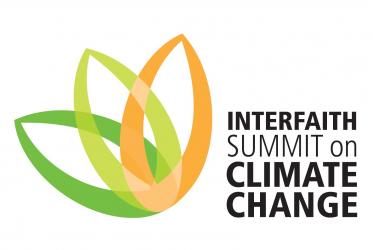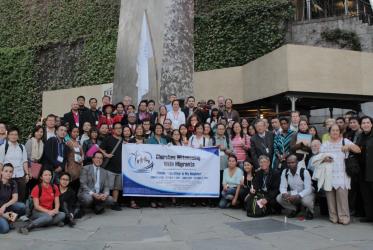Displaying 1 - 19 of 19
18 September 2023
Churches should use their voice on climate change
26 February 2020
A tribute to Rev. Dr James Cone
07 May 2018
Emily Welty: tide of hope for a world free from nuclear weapons
19 September 2017
Indigenous faith leaders reflect on resilience and climate change
23 September 2014
Dialogue on HIV, sexual reproductive health and rights
12 March 2014
Assembly elects new WCC presidents
03 November 2013
Churches advocate upholding human dignity of migrants
14 October 2013











